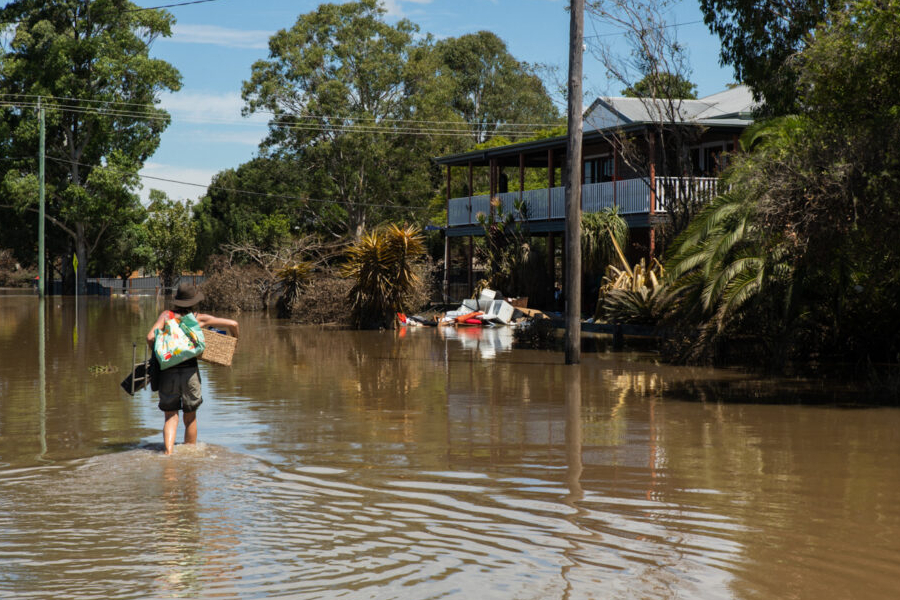The Investor Group on Climate Change (IGCC) held its 2023 Summit earlier this week. I spoke to IGCC’s Fergus Pitt, who outlined two of the big picture themes that stood out over the jam-packed two-day summit — climate resilience and adaptation, and the broad support for sectoral decarbonisation pathways.
Road to Resilience
Fergus explained that heading into the summit “we wanted to really give a boost to investment in resilience and adaptation.”
“The background to that is that over the last few years super funds and other institutional investors have made significant progress regarding climate mitigation and driving down emissions; repositioning their portfolios to reduce risk and invest in climate solutions in mitigation. Yet their progress on resilience and adaptation, and protecting against physical climate damage and destruction has had much slower progress.”
At the summit yesterday, IGCC CEO Rebecca Mikula-Wright, supported by the Assistant Minister for Climate Change and Energy, Senator Jenny McAllister, launched ‘Road to Resilience’, an investor action plan for an adaptive and sustainable economy.
This new strategy aims to stimulate investment in climate resilience, protecting against the physical risks of climate change.
“Even before we launched it yesterday, there was this theme coming through of a lot more investor attention being paid to physical risk because according to the latest and best science, the cost and exposure and the difference you’re gonna get in the physical climate damage and disruption radically exceeds the kind of risk exposure that economies have to mitigation.
“There’s the direct impacts of climate in the form of floods, high water levels, bush fires, and changing agricultural output. Then you’ve got your indirect impacts: communities that are not as healthy because they are dealing with say bushfire smoke that impacts your workforce. If you’ve got floods that damage sections of road, getting your goods to market is impacted.”
“One of the reasons investors haven’t made as much progress on that is because the information and data just hasn’t been out there.”
“So that’s an early step that needs to be in place so that investors can start. Ultimately, we want to get to the point of investors allocating capital into adaptation and resilience because those early investments are going to create value in the long run.”
“There are leading investors, such as Queensland Investment Corporation (QIC) that has been a big infrastructure investor and has developed a lot of capabilities in that, but the skills and the understanding is not well distributed across the industry. The Road to Resilience strategy will help accelerate progress on that front.”
Sectoral decarbonisation pathways in focus
Fergus noted that it was pleasing to have contributions at the summit from not only Senator McAllister, who has the responsibility for adaptation, but also the Minister for Climate Change, Chris Bowen, and the Treasurer, Dr Jim Chalmers.
Shadow Minister Ted O’Brien also provided insights into the Coalition’s climate ambitions.
“Governments come and governments go and this is going to be a multi-decade process and it’s certainly good that the shadow minister is also listening to investors, just as much as the government of the day. And if you had a look at the summit two years ago, you’ve got much greater engagement from investors around policy making” said Fergus.
The IGCC Summit was held just a month after the Minister for Climate Change’s recent announcement that in pursuit of net zero emissions, decarbonisation plans would be developed for all major economic sectors, including electricity and energy, industry (including waste), the built environment, agriculture and land, transport and resources.
Fergus said there was “a huge amount of consensus among panelists and delegates that sectoral decarbonisation pathways are a really big deal. If they’re done well, they have great potential to provide clarity and a stability in direction that makes it a lot easier to make investment decisions.”
“The development process of these pathways is going on now, so if investors do want to have a voice in how those are shaped, now is the time to get engaged. The IGCC is very well set up to feed in and IGCC members will be doing that, and I think that will be a really valuable process for members and for the economy and the decarbonisation of it.”

